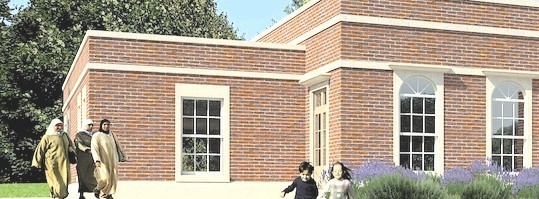 Issue No: 186
Issue No: 186
24th January 2014
22nd Rabiul Awwal 1435 A.H.
Salamun alaykum,
Hijra: It’s the 1435th Anniversary:
Another significant event in the month of Rabi ul Awwal is the hijra –migration- undertaken by the Noble Prophet from Makka to Yathrib, later renamed as Madinatun Nabi. This journey commenced on 1st Rabiul Awwal in 13th year of B’ithat (Launch of Prophets Mission).
Hijra: a turning point:
The hijra of the Noble Prophet is a crucial event. It was not just a transfer of residence or to take shelter in another city. For it was a turning point in Islamic history. The period of life which the Noble Prophet passed among the hard-hearted people of Makka represented an era in which the caravan of history of Islam seems to have come to a stop. When the hijra was undertaken the wheels of history of Islam were set into motion that has had an impact upon the world and is continuing to do so till today.
Vision of Masjidun Nabi:
As soon as he arrived in Yathrib / Madina the Noble Prophet commenced the transformation of that city and undertook a process to establish a faithful community. The Noble Prophet himself worked in carrying the stones for construction of the Masjidun Nabi. This small, humble building became a powerful structure serving as a focal point of all activities for the community. For not only was Masjidun Nabi a space for performing prayers and learning (madrasah), but it became a platform for establishing a dynamic community.
Are our centres geared towards the vision of Masjidun Nabi?
Are the muslims utilising the centres towards attaining this objective?
Action plan:
Other steps the Noble Prophet undertook in Madina included:
- Education: Set up the first school.
- Poverty Eradication: : Establishing brotherhood- muakhat on the basis of faith not on the basis of tribes as the arabs used to have prior to Islam. A Muhajir –emigrant- was paired to the Ansar-helper- whereby the Ansar would share his wealth, property with the muhajir and help each other.
- Intercommunity and Interfaith Relations: There was a large Jewish community as well as some other Arab tribes in Madina who had not accepted Islam. The Noble Prophet established good relations with other communities living in Madina. An agreement known as Mithaq Al Madina (covenant/ constitution of Madina) was drawn to establish friendly relations between these communities. This was the first written constitution in the world.
- Water System: The Noble Prophet encouraged muslims to dig wells in different parts of Madina. More than 50 wells were dug in the city and there was enough clean water.
- Agriculture: The Noble Prophet urged the companions to cultivate the land and soon there was enough food for everyone.
From the foregoing mention it can be seen that Hijra brought spiritual, moral and material goodness to the society.
We, as a community who have undertaken the process of hijra / migration for various reasons including education, refugees, employment, economic gain or in one way or the other for a better way of living, let us reflect on the Hijra and what the Noble Prophet did, after hijra, in Madina so that, as muslims, wherever we go we should bring goodness to that land. InshAllah.
Wa ma tawfiqi illa billah
Fazle Abbas Datoo
This email address is being protected from spambots. You need JavaScript enabled to view it.
Resident Alim
Wessex Shia Ithna Asheri Jamaat
